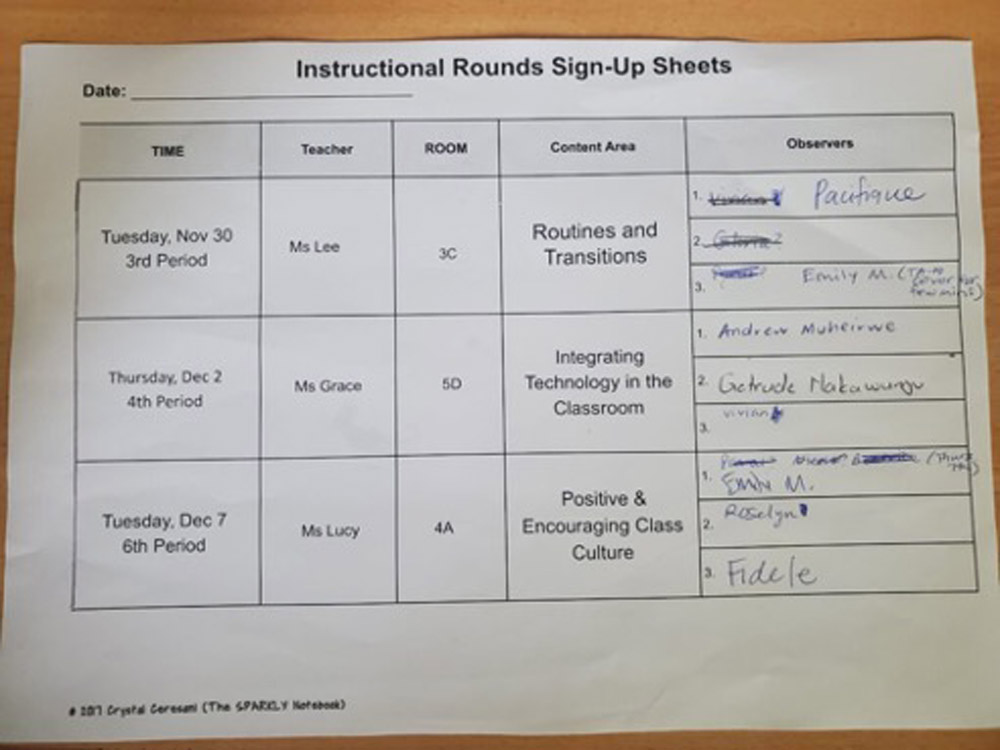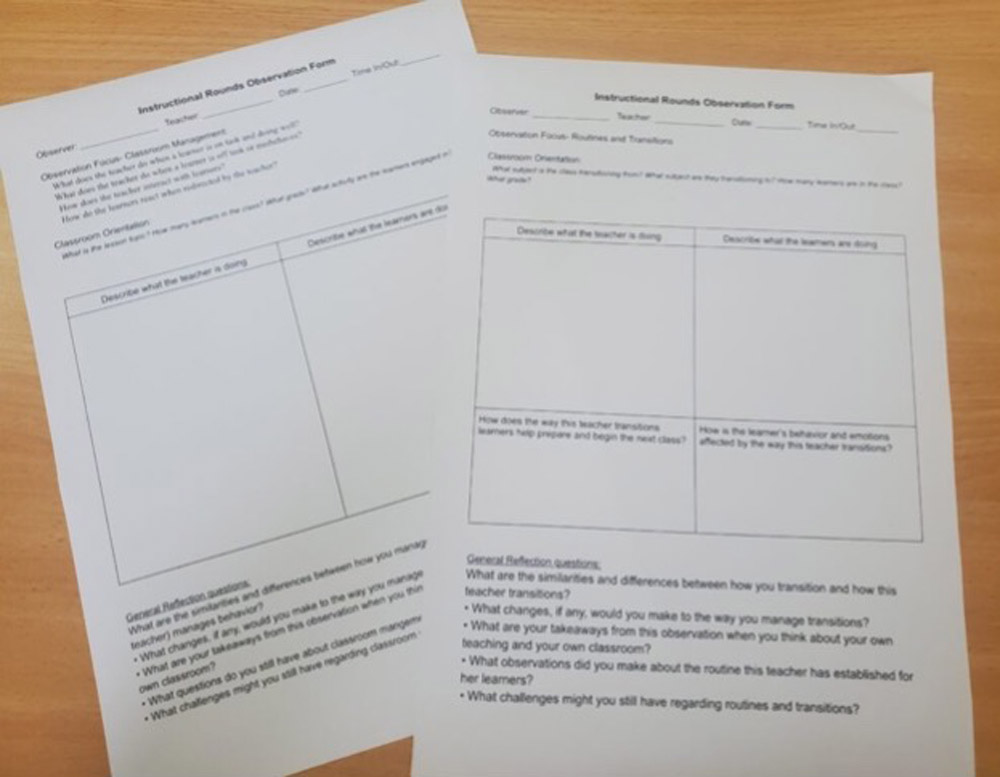
We all know it can be very difficult to find time for professional development during the school year. Sometimes, as administrators or coaches, we need to get creative. That’s why I implemented instructional rounds or peer observations last year. When I first introduced instructional rounds at my school, teachers had never heard of them. I needed to break down what they are and what they aren’t. It’s not an opportunity for one teacher to observe and evaluate another teacher. The learning opportunity isn’t for the one being observed at all. Instead, the teachers observing are trying to see what strengths another teacher has that they can grab and implement in their own classroom.
How to Get Started
After informally observing the teachers in your building, choose three topics you feel teachers at your school could grow in. Examples include incorporating technology, positive classroom culture, and effective transitions. Choose one teacher who does each of these three topics very well and ask them if you can bring in two to three teachers to observe them using their strengths in the classroom. Be sure to let the teachers know you already think they do this focus area well and that all they need to do is demonstrate it the way they naturally do with their students.
Next, send out a sign-up sheet identifying the three topics, the teacher who will be demonstrating each topic, and the date and time of the observation. I only leave space for three teachers to sign up for each topic because I don’t want to overwhelm the teacher being observed or the students by bringing in too many people. If a topic is really popular you can always do that instructional round more than once. Sometimes, I personally invite teachers if I think this is an area they need to focus on or if it’s part of the goals they have identified with me earlier in the year.

Steps to Instructional Rounds:
1. Set the focus (5 mins)
2. Observe in the classroom (15 mins)
3. Independent Observation Reflection (5 mins)
4. Group Observation Reflection (10 mins)
Preparation for the Instructional Round
I have a basic observation form that teachers fill out when they are observing during instructional rounds. However, I like to guide teachers a little more by adding specific questions to the form depending on what the focus area is.

After we spend a few minutes observing, we meet outside in the hall or an empty room to debrief and discuss what was seen. I ask teachers what they can apply in their own classrooms. Teachers usually do a good job of keeping the discussion positive but if they do start bringing up criticism of the teacher being observed, I gently redirect the conversation. The purpose of instructional rounds is not to give feedback or suggestions to the teacher that was observed.
Overall, teachers praised the instructional rounds we did last year. They said they learned a lot by watching other great teachers in our building and they look forward to having more opportunities in the future. They have even started observing each other without my organization.
--------------------------------------------------------------
Monica serves as an instructional coach in her current role as vice principal of primary at Green Hills Academy in Rwanda. She has a passion for equipping and mentoring educators around the world.
Instagram: @seedsforteachers
Website: seedsforteachers.com